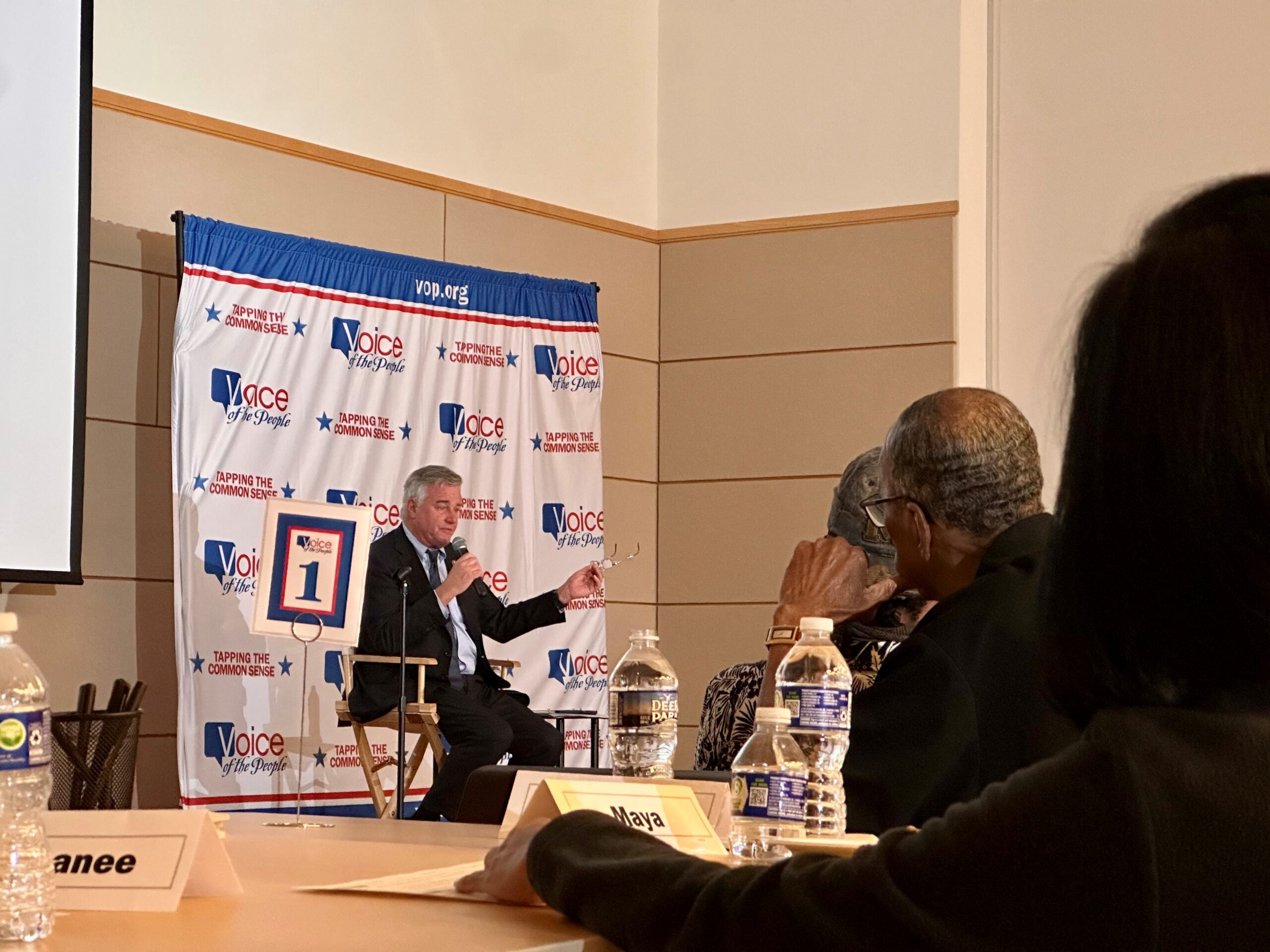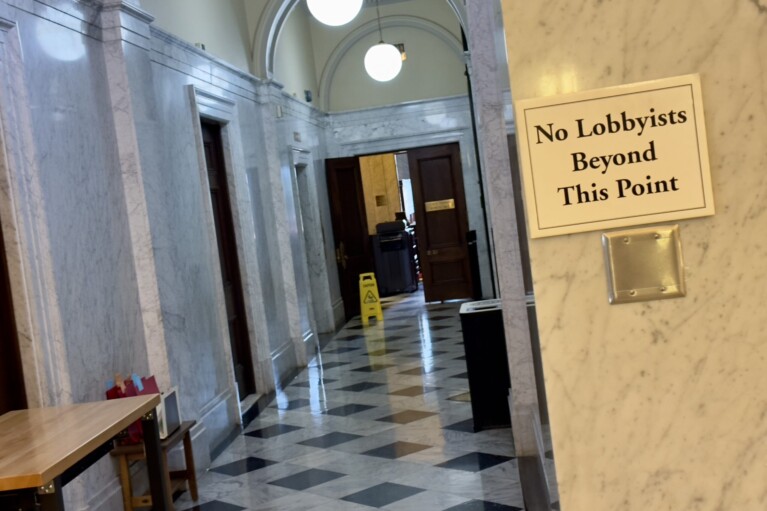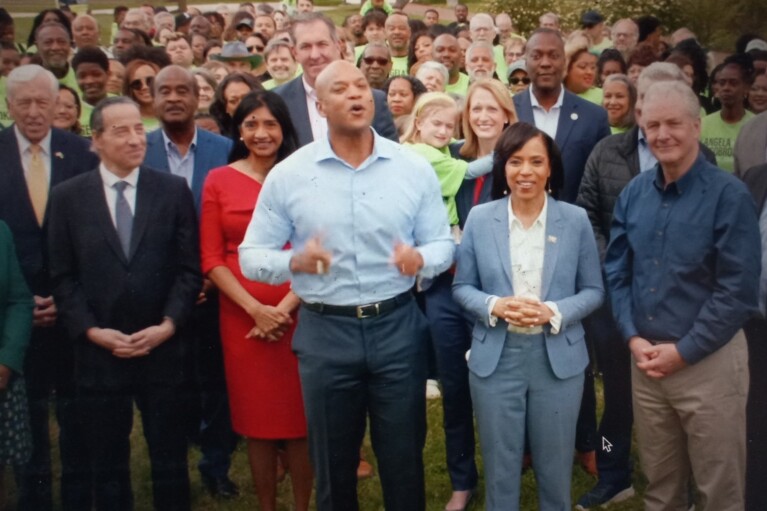Survey of Western Maryland residents finds broad support for federal funding to expand substance use disorder treatment, police training

Majorities of both Republicans and Democrats in Western Maryland would support federal proposals to provide more treatment for people with substance use disorders and train police to divert people into treatment rather than prison, according to a recent poll.
The survey results, gathered in July and August from 747 residents of the 6th Congressional District, were released Sunday and discussed at a “Public Consultation Forum” hosted by Voice of the People and Maryland Matters.
It’s a debate of acute importance.
In 2022, there were 2,059 fatal overdoses in Maryland, according to preliminary Department of Health statistics.
More than half of 6th District residents polled knew someone who misused drugs or alcohol, and four-in-ten personally knew someone who died from a drug overdose.
Nationally, deaths from drug overdoses have surged over the last two decades. In 2020, about 100,000 people died from drug overdoses, more than triple what it was in 2000. In addition, each year about 90,000 people die from alcohol misuse.
Questions in the simulation are all borne from recent or current congressional legislation or debate.
The poll found:
- A bipartisan majority of 83% favored increasing federal spending on treatment for substance use disorders by $10 billion, which experts estimate could enable nearly all people who need treatment to get it. Eight-in-ten Republicans and nine-in-ten Democrats were in favor. According to the proposal in the Comprehensive Addiction Resources Emergency Act, these funds would be used to expand the number and size of treatment centers; offer free or low-cost treatment to those who cannot afford it; and train healthcare professionals in best practices to treat substance use disorders.
- Increasing funding for treatment programs in prison was also favored by a bipartisan majority — 71% of Republicans, 86% of Democrats and 78% of the district overall. This proposal was based on the Residential Substance Use Disorder Treatment Act.
- A proposal for training more law enforcement officers to divert non-violent offenders with substance use disorders into treatment rather than charge them with a crime was favored by a large bipartisan majority (74%), including 68% of Republicans and 81% of Democrats. This proposal was part of the Comprehensive Addiction and Recovery Act 3.0, sponsored by Rep. David Trone, who has represented the district since 2019.
“Frankly, these are the types of numbers we’ve been seeing since we’ve been working on these issues,” said Trone, who is co-founder and co-chair of the 140-member Bipartisan Addiction and Mental Health Task Force.
He has made substance use and mental health treatment the focus of his time in Congress after his nephew died of an overdose.
“We didn’t have the unassailable tsunami of support that we’re beginning to get now,” Trone said. “…Why do we have so many people now interested in this? Because we have that many more people dead.”
“We’re beginning to get more traction, more support, in Congress on driving more dollars,” to substance abuse and mental health treatment, he said.
The policymaking simulation was created by the University of Maryland’s Program for Public Consultation.
In the exercise, representative samples of congressional district go through a series of online questions, considering arguments for and against federal policy proposals.
A subgroup of the representative sample then comes together for a public meeting to discuss their conclusions with their elected member of Congress.
The simulation seeks to put the average American in the decision-making shoes of their congressional representatives — and sow common ground and build public policy polling at the same time.
Constituents who attended Sunday’s forum largely agreed with the policies proposed.
Brandon Holt, a behavioral health tech, said he believed $10 billion toward more treatment was a good idea, but said he was a “firm believer that you can’t just throw money at a problem like this.”
He suggested that increased funding for substance use disorder treatment should include treatment for co-occurring mental health disorders and that treatment centers should meet certain standards.
Rashanee Centurion, a Germantown resident who is studying psychology at the University of Maryland College Park, said she especially supported the effort to train police officers.
Centurion was pulled over last year while she was experiencing a mental health crisis. Thankfully, she said, the officer was kind and supportive and waited with her until a family member arrived to provide help, but he didn’t really have the vocabulary to address her situation.
“If more officers were shown how to act like that … or even better training to teach them what to say, I feel like a lot of things and deaths could be prevented,” she said.
Mark Collins, a Germantown resident who teaches 10th grade government courses in Prince George’s County, said the simulation was enlightening — and it made him wonder whether enough members of congress are taking the time to deliberate legislation and undertake cost-benefit analyses.
“Does anyone in Congress say, ‘Look, this is how much it will cost, this is how much we can save and we can also help society be a better place,’” Collins asked. “Which is what I always tell my kids to do, make the world a better place.”
Anyone can take part in more than 60 policymaking simulations on the Voice of the People website — on topics ranging from solitary confinement to solar panel tariffs to election reform to the United States involvement in the Ukraine-Russia war — and share the results with their representatives.
You can view the full Sunday forum here.




 Creative Commons Attribution
Creative Commons Attribution